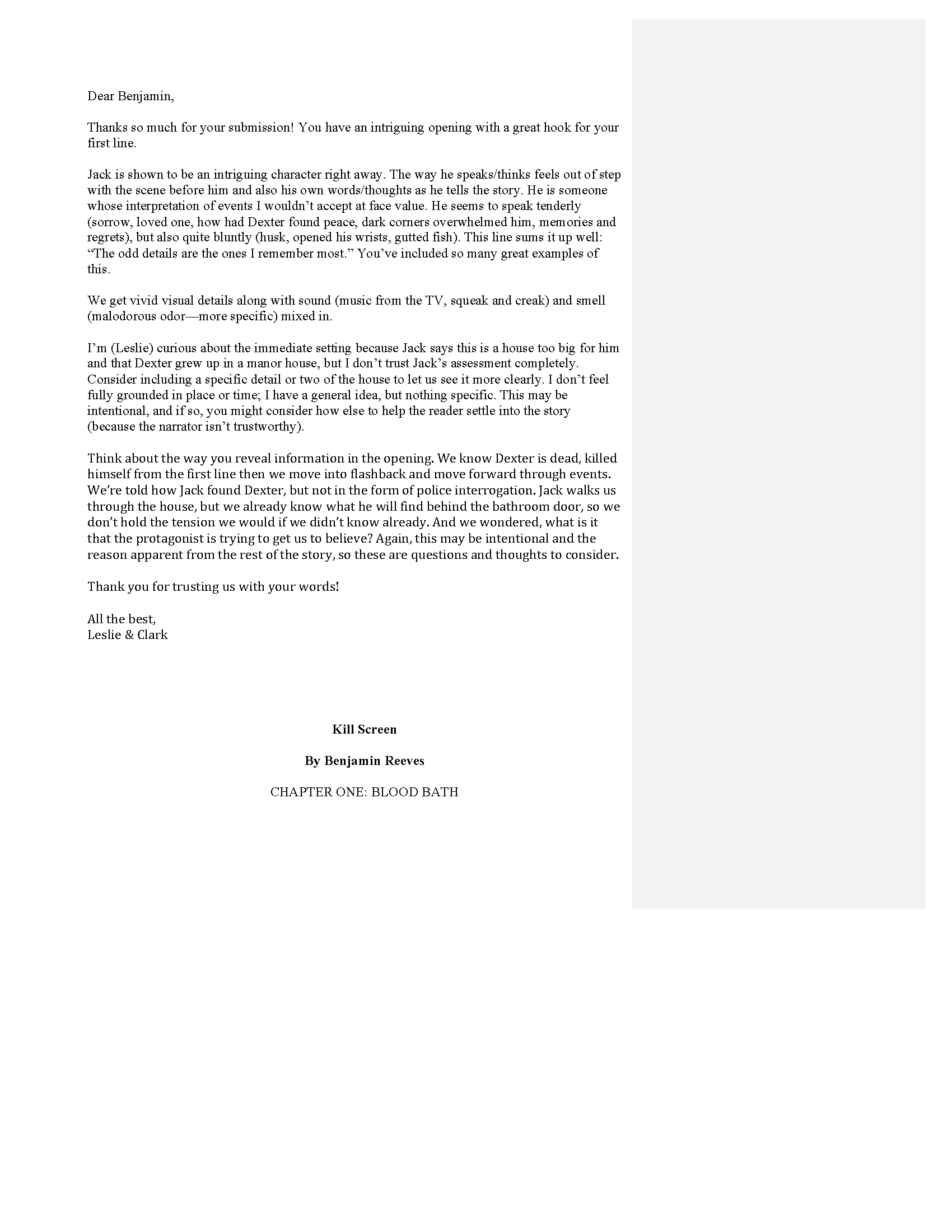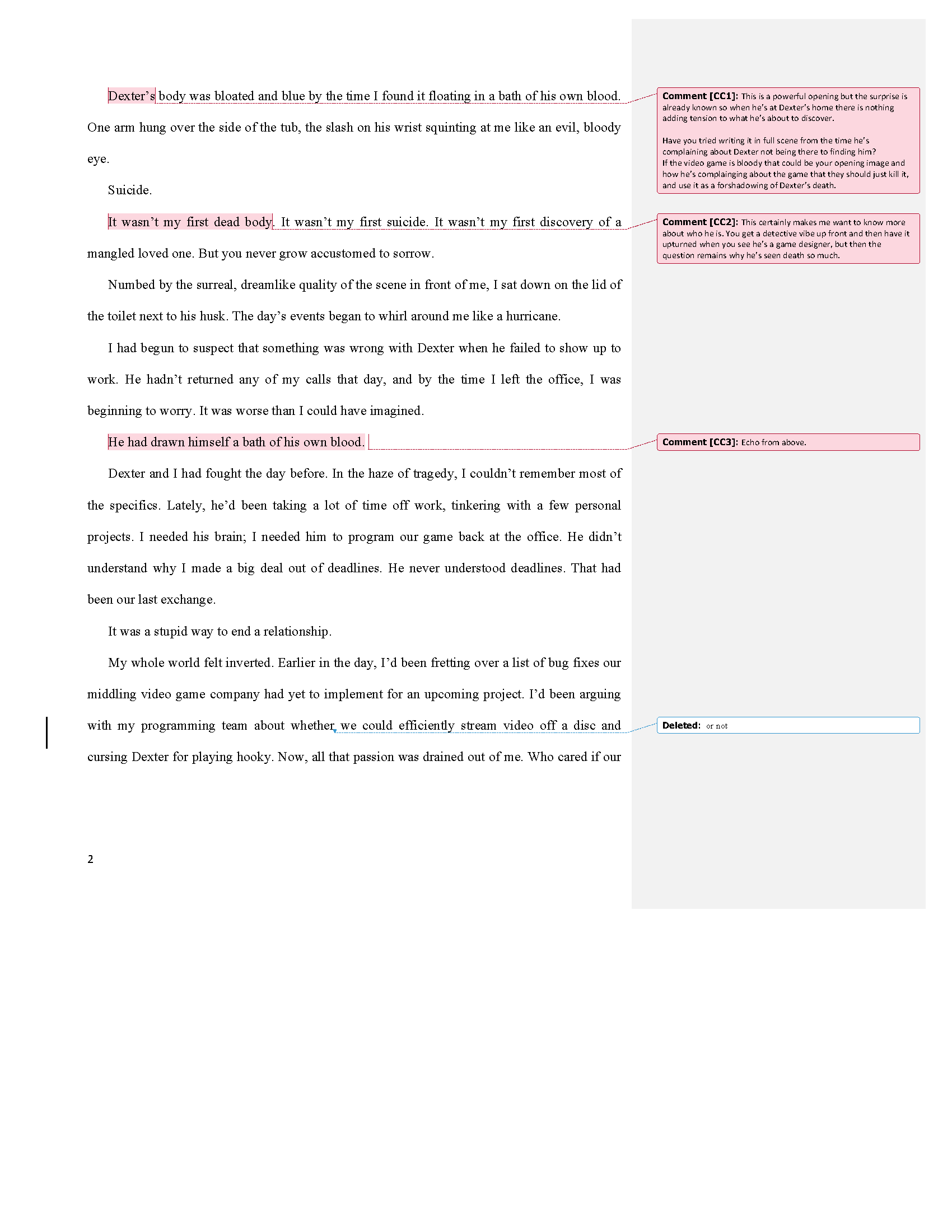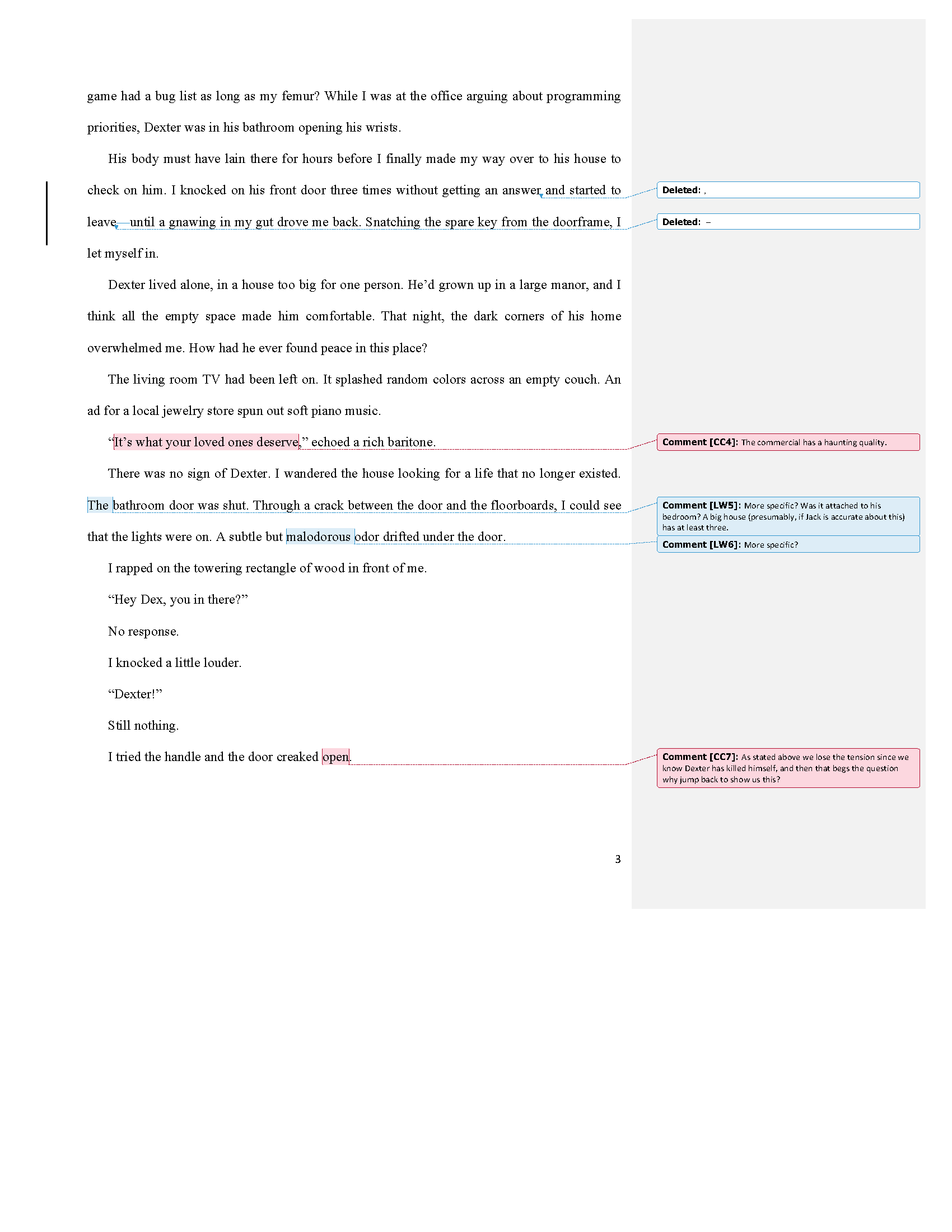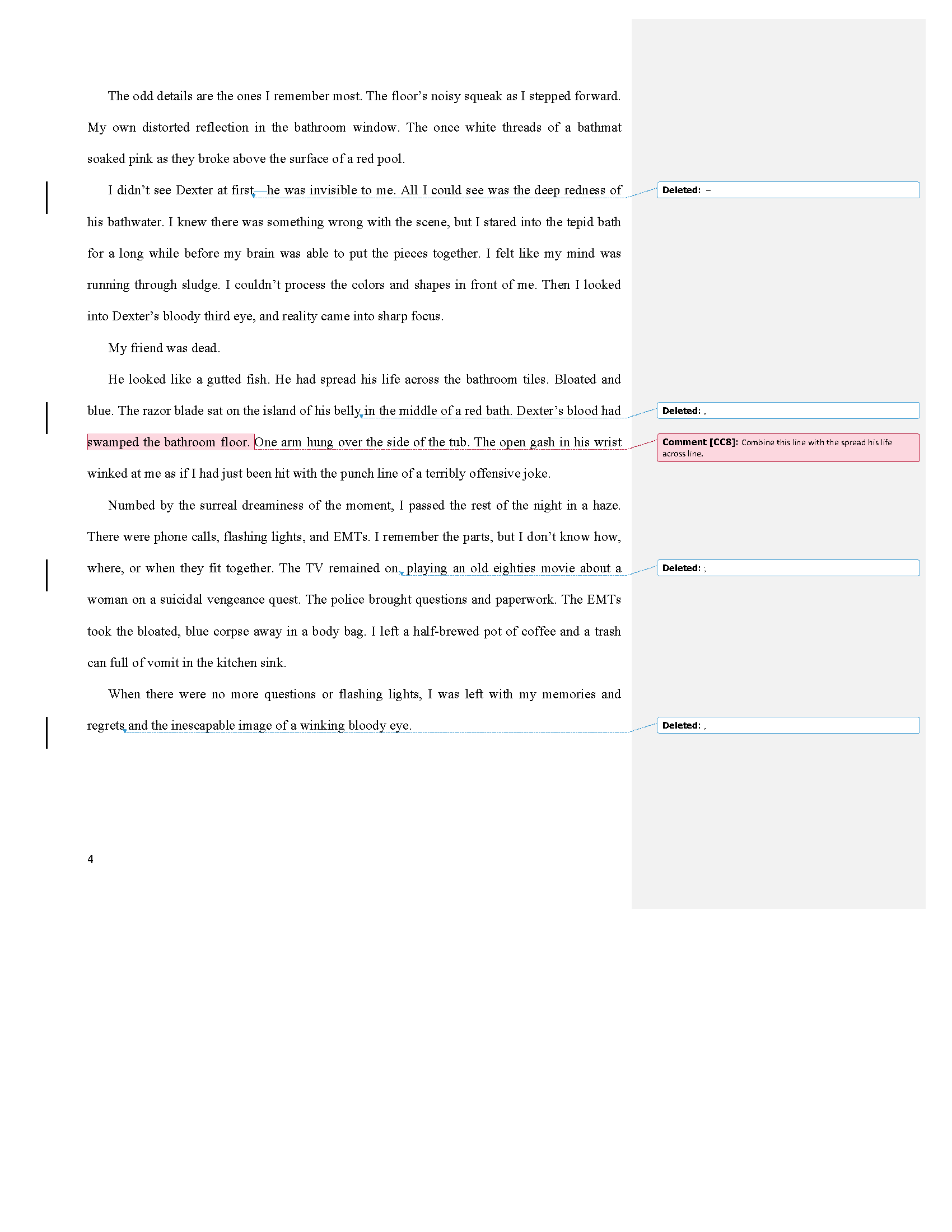Description
In this episode, Leslie and Clark critique the first chapter of Kill Screen, a literary science fiction thriller by Benjamin Reeves. They discuss unreliable narrators and the ways characters are dishonest, revealing facts to the reader, setting, and tension.
Want to read on? You can find Kill Screen here or visit Benjamin's website.
Listen Now
Show Notes
“Every human being is, to some degree, an unreliable narrator. When we tell our stories to others, and even when we tell our stories to ourselves, we create our own version of events and of our lives as a whole. We don’t necessarily mean to deceive. But we can see and understand our experiences only from our own viewpoint—a shifting viewpoint at that. Facing the truth is a messy business. It involves denial, and pride, and the fact that understanding takes time; it relies on perspective (or lack of it), and the pesky fact that we can only face the truth we can stand to face at any given moment.
***
The unreliable narrator is an effective technique that makes for such a rich reading experience because we are all familiar with our own deceptions, confusions and egos, and with the times we wish the truth were different. The humanity of your protagonist is key. If the little lies and the tunnel vision and the character flaws that you create are those we know from our own lives, your reader will stay connected to your character. Finding the truth in the untruths will elevate your story. An unreliable narrator is not just a device, but also the skilled portrayal of a realistically flawed human being.”
Editorial Mission—UNRELIABLE CHARACTERS
In what ways is your protagonist unreliable or dishonest with himself and others? Even if you don’t have a character like Holden Caulfield or Humbert Humbert, there are things your character can’t see about himself and the world around him. Do a timed writing session for 10–20 minutes exploring where he is less than sincere. Consider what the positive and negative story-relevant consequences are for him and the people around him. Then spend the same amount of time writing about the ways in which your character is completely aware and trustworthy. Do any consequences flow from this? Then review your manuscript to see if your understanding of the character is showing up in your character’s thoughts and behaviors and the reactions that other characters have to him.
Do you want editorial missions sent directly to your inbox?
Sign up below to join the podcast club and you'll never miss an episode—or an editorial mission—from the Writership Podcast!
Inline Critique





